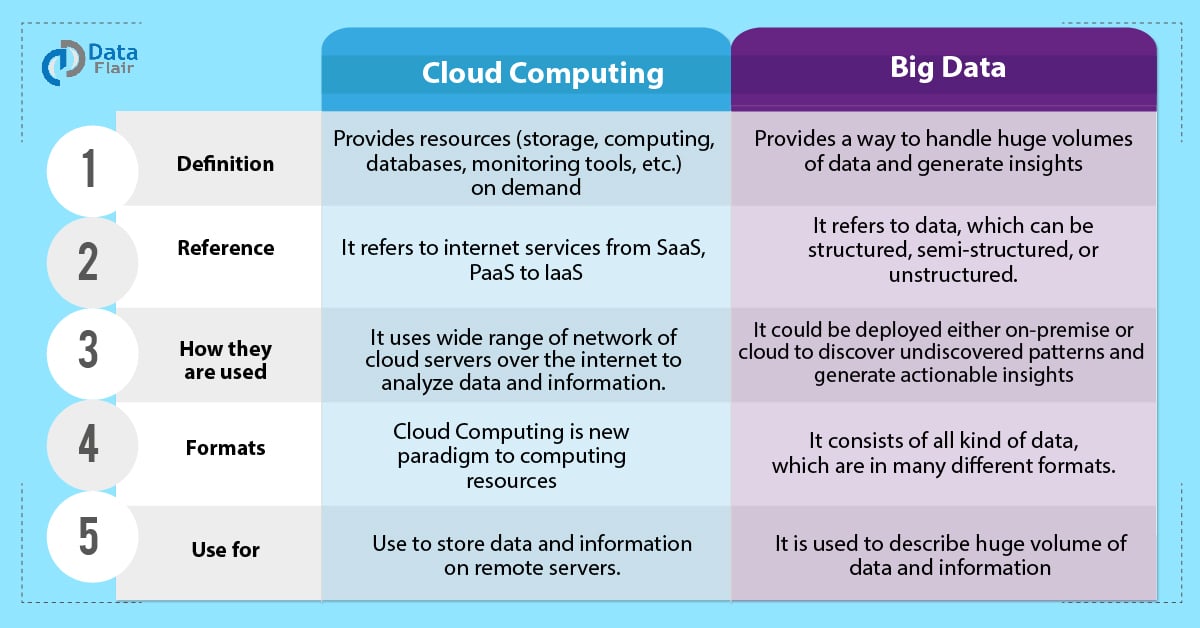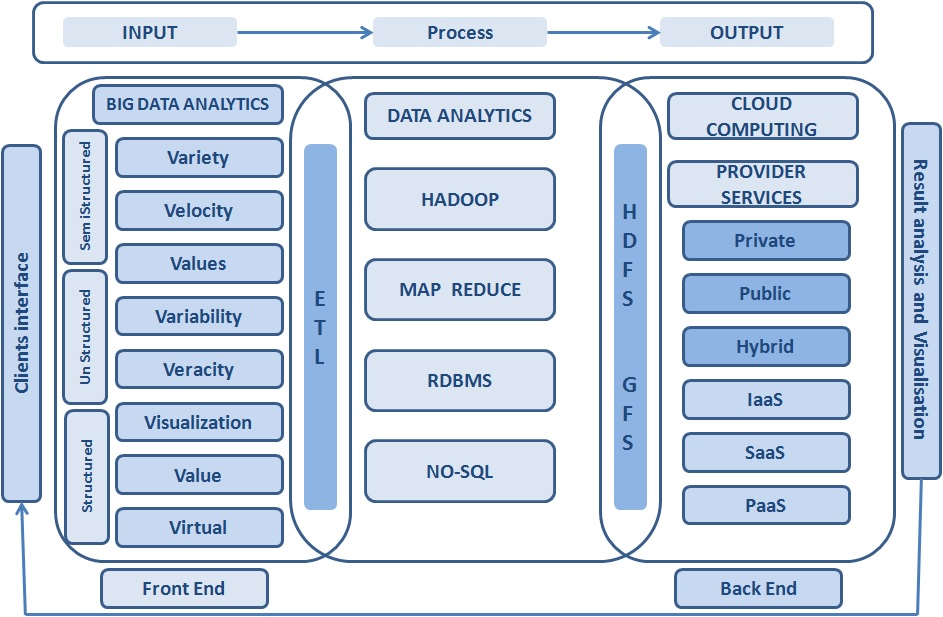In today’s digital age, data is everywhere. With the exponential growth of technology, businesses and organizations are collecting an enormous amount of data from various sources. To effectively manage and analyze this data, companies are turning to big data solutions. These solutions provide the ability to process and analyze large sets of data to derive insights and make informed decisions. However, as data volumes continue to grow, traditional on-premise storage and processing solutions are becoming insufficient. This is where the cloud comes in.
The cloud offers a scalable and flexible solution for storing and processing big data. It provides a cost-effective way to store and manage large data sets without the need for expensive hardware and infrastructure. Additionally, cloud-based big data solutions allow organizations to easily process and analyze data on-demand, enabling them to quickly respond to changing business needs. In this article, we will explore the relationship between big data and the cloud, and how this combination is transforming the way businesses manage and analyze their data.

What is Big Data’s Relationship to the Cloud?
Big Data and the Cloud have a close relationship. Big Data is a term used to describe the vast amounts of data that are collected and stored in the Cloud. By leveraging the Cloud, businesses are able to analyze large datasets and gain insight into customer behavior, trends, and other important information.
The Cloud provides businesses with a powerful platform to store and analyze Big Data. By leveraging the Cloud, businesses can access data from multiple sources, process it quickly, and extract valuable insights. Additionally, the Cloud makes it easier for businesses to scale their Big Data projects as their data requirements grow.
The Benefits of Big Data and the Cloud
Big Data and the Cloud offer a number of benefits for businesses. By leveraging the Cloud, businesses are able to access data from multiple sources and process it quickly. This allows them to gain insights faster and make better decisions. Additionally, the Cloud makes it easier for businesses to scale their Big Data projects as their data requirements grow.
The Cloud also provides businesses with a secure platform to store their Big Data. By leveraging the Cloud, businesses can ensure that their data is secure and protected from unauthorized access. Additionally, the Cloud can help businesses save on storage costs by allowing them to store their data in the Cloud instead of on local servers.
The Challenges of Big Data and the Cloud
Although Big Data and the Cloud offer a number of benefits, there are also some challenges that businesses need to be aware of. For example, the Cloud can be vulnerable to security threats and businesses need to ensure that their data is secure. Additionally, businesses need to ensure that their Big Data projects are properly planned and managed to ensure that they are able to get the most out of their data.
Finally, businesses need to be aware of the costs associated with storing and processing Big Data in the Cloud. Although the Cloud can help businesses save on storage costs, they will still need to pay for the processing power required to analyze their data. Additionally, businesses need to ensure that they are able to access the data they need in a timely manner.
Conclusion
Big Data and the Cloud have a close relationship and offer a number of benefits for businesses. By leveraging the Cloud, businesses are able to access data from multiple sources, process it quickly, and extract valuable insights. Additionally, the Cloud makes it easier for businesses to scale their Big Data projects as their data requirements grow. However, businesses need to be aware of the challenges associated with Big Data and the Cloud, such as security threats and costs associated with storing and processing Big Data in the Cloud.
Frequently Asked Questions
In recent years, the cloud and big data have become closely intertwined as both have grown in popularity. Big data and the cloud have a symbiotic relationship that has allowed businesses to make more data-driven decisions, become more agile, and reduce costs.
What is Big Data’s Relationship to the Cloud?
Big data and the cloud have an intertwined relationship. Big data enables businesses to collect and analyze massive amounts of data quickly and easily. The cloud allows businesses to store and access this data from anywhere. This enables businesses to make better decisions faster, as they can access and analyze data from multiple sources in real time. The cloud also allows businesses to scale their data storage and analysis capabilities quickly and cost-effectively.
Big data and the cloud also work together to provide businesses with better insights into their operations. By leveraging the cloud’s ability to analyze large amounts of data quickly and efficiently, businesses can extract valuable insights from their data that can help them make better decisions and improve their operations. Additionally, the cloud’s scalability and cost-effectiveness also provide businesses with a powerful tool to store and access large amounts of data quickly and easily.

Big Data In 5 Minutes | What Is Big Data?| Introduction To Big Data |Big Data Explained |Simplilearn
In conclusion, the relationship between big data and the cloud is not only critical but also complementary. The cloud provides a scalable, flexible, and cost-effective infrastructure for organizations to store, process, and analyze vast amounts of data. It allows businesses to leverage big data technologies and tools to gain valuable insights, make informed decisions and drive innovation.
As big data continues to grow in volume, velocity, and variety, the cloud is becoming even more crucial in managing and processing this data. With the cloud, organizations of all sizes can access the power of big data without the need for significant upfront investments in infrastructure and expertise. Therefore, it is safe to say that the cloud is the future of big data as more businesses recognize the need to leverage data to stay competitive and drive growth.



